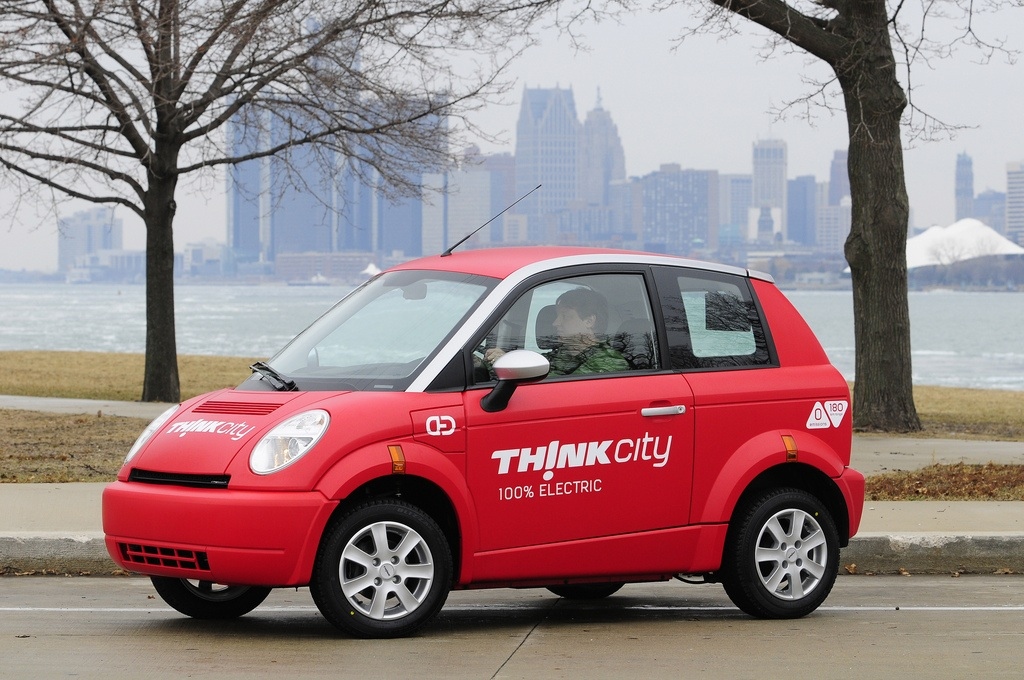
Think City electric vehicle
They predict a battery lifespan of only a few years, requiring costly replacement. At this point, they say the price of the battery replacement would approach or exceed the worth of the vehicle. They don't believe the power grids (in England) could handle the current draw when all the EV owners plugged them in to charge at night. Manufacturers' claims regarding range, charge times, and lifespan are all nonsense when compared to the reality of today's battery technology. Systems capable of such specs would weigh as much as a normal car and cost hundreds of thousands. In other words, they're saying the EV hasn't got a chance to compete with gas-burning cars.
They cite expert studies from the British Institute of Engineering & Technology, which were also mentioned by Autocar this week. So how does one balance the claims of the auto makers against the studies of experts? The real test for the purely electric vehicle will be in the real world, under real driving conditions. The current level of development of battery technology seems to suggest that we won't see practical use of the EV for another decade or so. It's not a question of whether or not the EV is possible, but rather, how soon it will be able to replace cars that still need those dirty old exhaust pipes.
Battery-powered electric cars will show up in cities and probably even highways over the next few years. As I mentioned a few days ago, it's pretty unlikely that you or I will own one any time soon. Many people are skeptical, and admittedly, so am I until I've seen what they are truly capable of. Despite their exciting potential, they are relatively unfamiliar. The extent of my exposure to EVs has been golf carts and forklifts, neither of which has the burden of such high expectations. The internal combustion engine has set the standard for motor vehicle performance for a solid 100 years, and now the battery-powered electric motor is expected to compete. Although these aren't the first ones ever successfully built, they don't have the decades of research behind them like the internal combustion engine does. It's unlikely that they'll be a threat to small gasoline and diesel engines. Battery technology is the key here, and it's just not what it needs to be. Yet.
Check out the articles by Michael Hanlon and Sean Poulter for their thoughts on the EV's future.